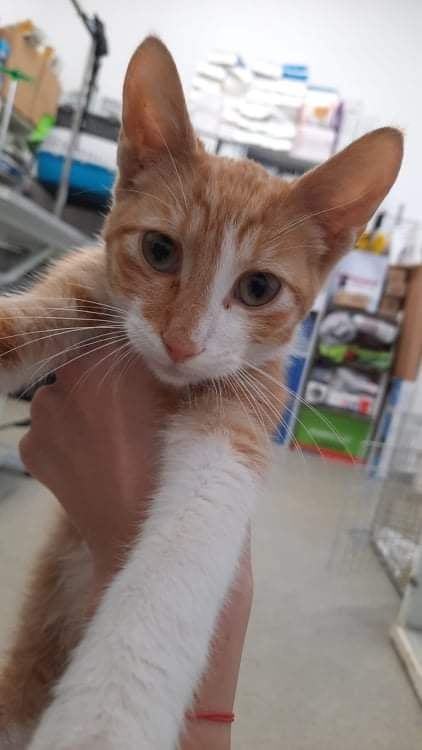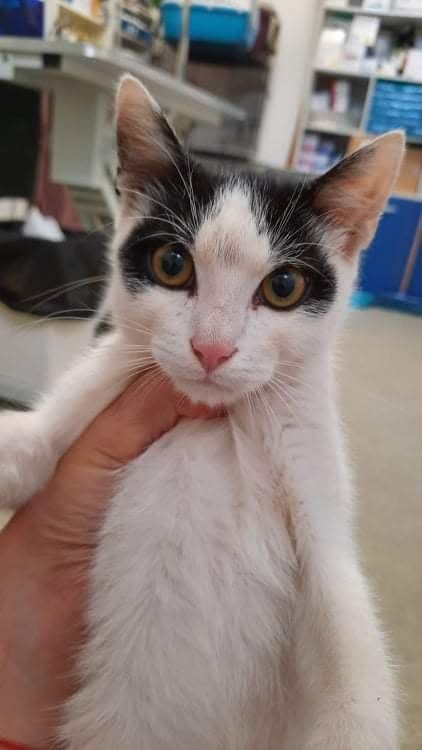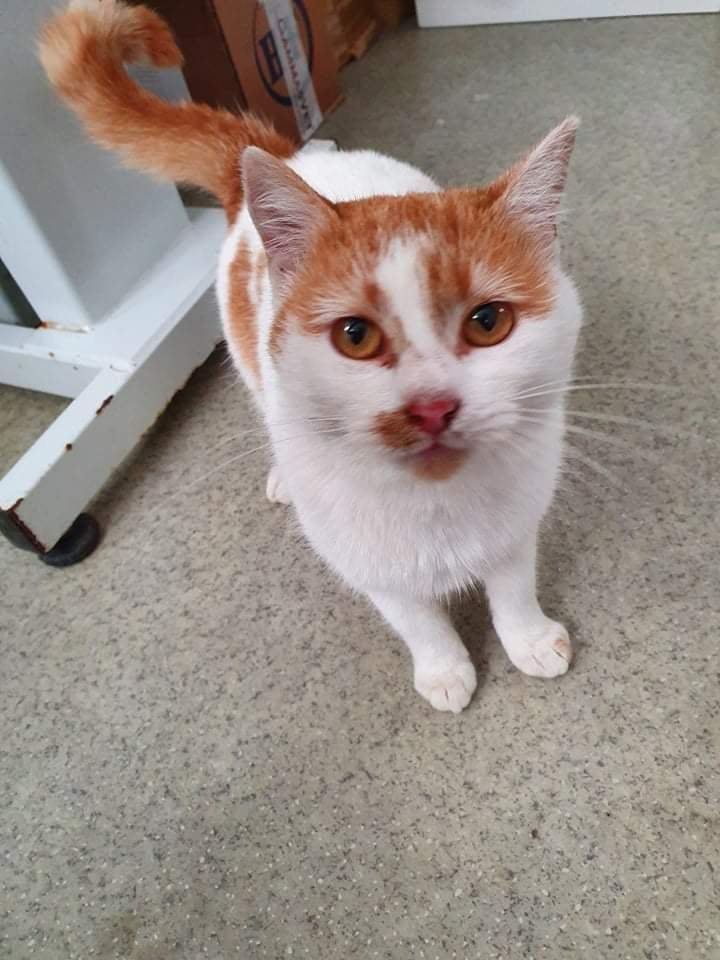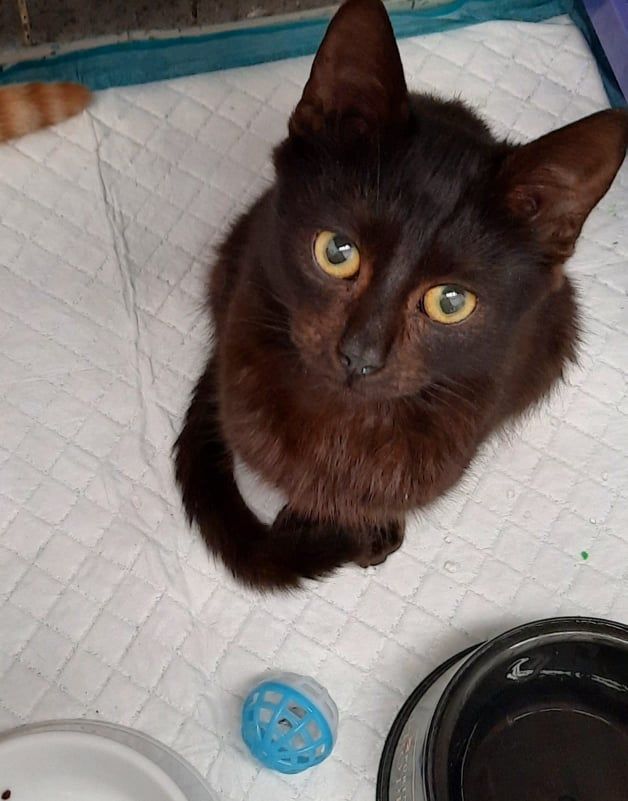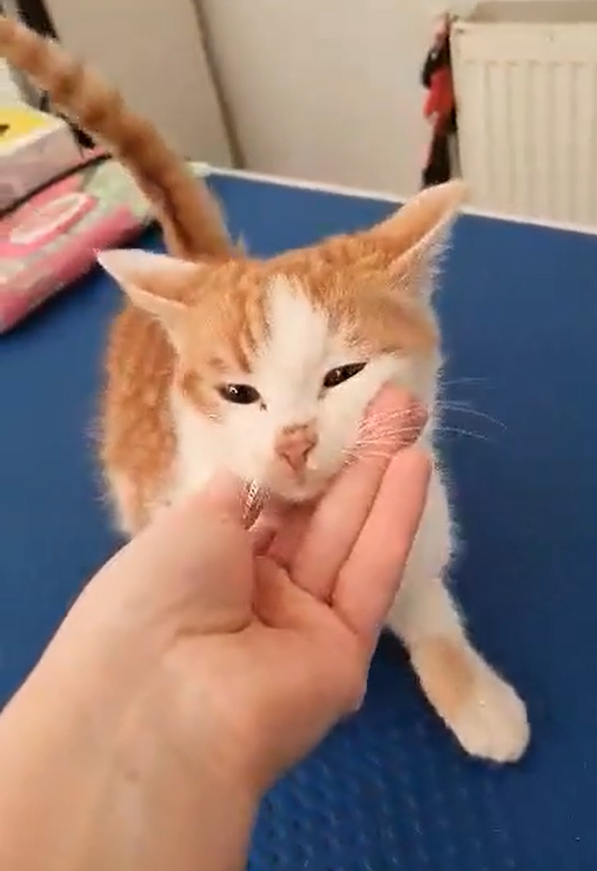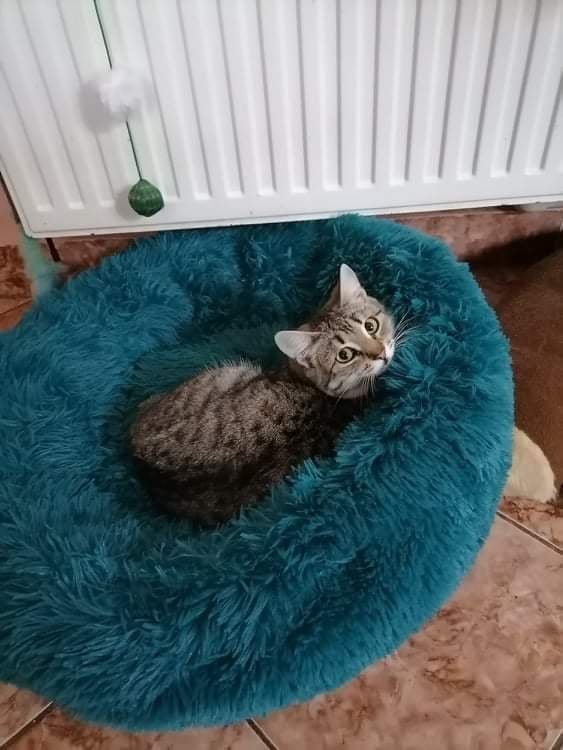Oakwood Cats & Kittens
That's right, it's not just dogs that Oakwood help!
In some urgent case's we have cats come into our care, this may be to escape the horror's of a Romanian kill shelter or helping UK stray cats that have no where else to go.
Please read the tabs below for infomation on our cats and adoption process.

About our Cats & Kittens
Below is all the information you need regarding our cats and kittens that are available for adoption.
Information on our cats & kittens
UK Stray Cats: Sadly even in the UK there are many stray cats which go on to produce even more stray cats! This means that feral kittens can be rife, this is even an issue close by in Hull. Our experienced 'staff-foster carer' works hard to rehabiliate these feral kittens helping them adjust to domestic life and get them ready for their forever home.
Romanian Cats: Cats are viewed as vermin in Romania and they are commonly mistreated by humans of all ages. Many roam free due to the disinterest in neutering or spaying which leads to lots of kittens being born each year.
Cats are manhandled, poisoned and culled on a daily basis. Many are born in the kill-shelters and are euthanised when the shelters become full.
The cats that we save travel across to the UK and live in temporary foster to help them get used to people and a home environment. Like our dogs, the cats have never lived in homes before and have only lived outside or in a pen.
The cats, Uk or Romanian, do have street-cat lineage, so there will be behaviours you will need to expect - please read on to find out more.
Adoption donations
A cat's adoption donation amount is £100.
What comes with adoption?
Your cat will be:
- Neutered
- Vaccinated against: feline panleukopenia virus, cat flu, feline leukaemia virus and rabies
- Treated for: fleas, worms and ticks
- Tested for: feline immunodeficiency virus, feline leukaemia virus, feline coronavirus and giardia (If Romanian)
- Microchipped
- Come with a pet passport (If Romanian)
- Will come with 5 weeks free insurance (Agria)
Who can adopt a cat from Oakwood?
Our cats can be adopted into homes with children of any age, other cats and dogs depending on the cat. For UK feral kittens they often thrive in quiet homes so in those cases adult only homes are preferred
It is the owner's responsibility to manage the children/dogs/current cat around the new cat and give them space.
- It will take lots of time to have your cat adjust to the home, expect your current pets to not be friends with your new cat for weeks, months if not longer. They will be upset about the change in the home and you cannot make a knee-jerk decision to return the cat. You must allow it to run its course and let them build a relationship in their own time.
The process of adopting
- Complete a cat application form [bottom of the page].
- Check junk emails regularly to respond to emails.
- Suitable applicants will recieve a screening call with a member of the Adoptions Team to discuss matches.
- £50 non-refundable deposit must be sent via bank transfer to reserve your cat to you.
- A home-check will be conducted, by this time you must have all the recommended items ready for your cat.
- A virtual viewing will take place and shall be held by the fosterer, any further questions you have can be asked here.
- A transport or collection date will be arranged with you and your contract will be sent via email, this must be signed and returned before your cat sets off to your home, or wih UK cats before pick up. The remainder of the adoption donation must be paid once the contract is sent.
- You will need to meet the transporter to collect you cat (further details will be provided in the screening call), you must take a cat carrier with you for the cat to go in.
- Take you cat home and allow them to rest and adjust to their surroundings.
What to expect:
Romanian or UK feral cats can be different to your average UK cat due to their ancestory and upbringing.
- The cats have never lived in homes before, so they do not understand the boundaries you may set. When the cats enter the foster home they are introduced to a home environment, however, they will only be there temporarily, so an indepth assessment is difficult to achieve. Your home will be set out differently, smell different and feel different to them, there may be behaviour exhibited that isn't seen in the foster home.
- In the foster home the cats are learning to use a litter tray but toileting accidents may still occur. It is important to provide your cat with a litter tray in a quiet area so that they feel safe using it.
- Cats can be destructive if not provided with enough mental stimulation or activity. This could be, but is not limited to: scratching tables, chairs, sofas, stairs, wallpaper, knocking ornaments off of ledges, knocking possessions from a high surface and breaking them, getting into food containers/bags, chewing items, destroying blinds and more.
- They will use platforms! Anything they think they can jump on, they will! This could be tables, chairs, wardrobes, door tops, sheds, storage containers, kitchen surfaces, sofas, christmas trees and more.
- The cats will seem hungry for weeks - they are recovering from starvation and will need feeding multiple times a day whilst they are learning that food is not a rarity in the home. They will try to eat everything and everything they can get hold of. You will need to ensure that any edible item is shut away from the cat.
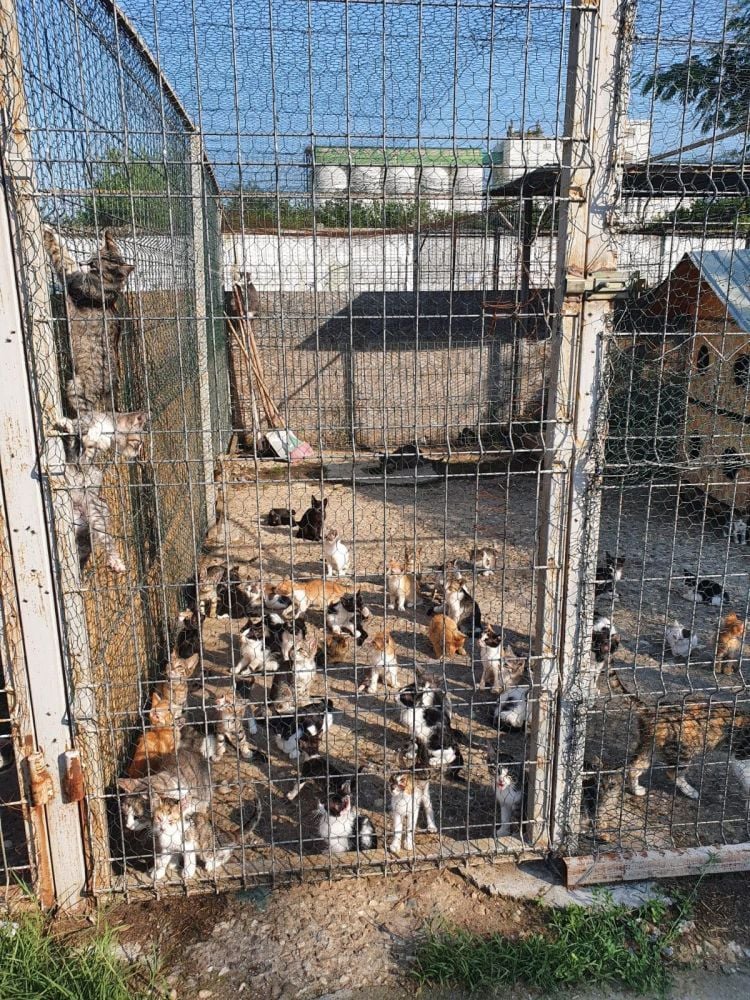
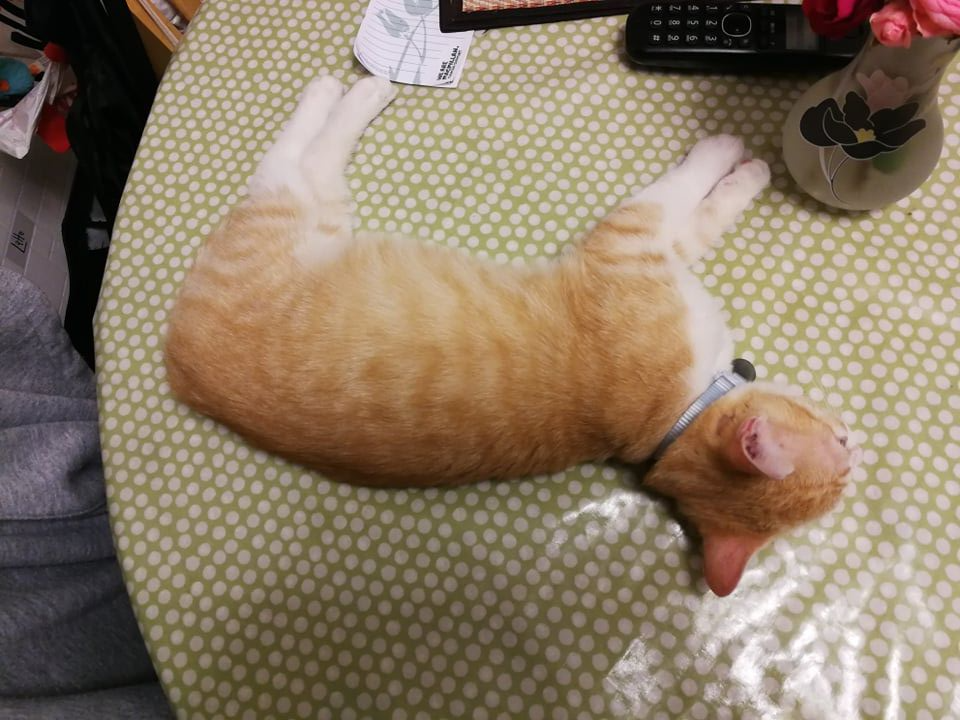
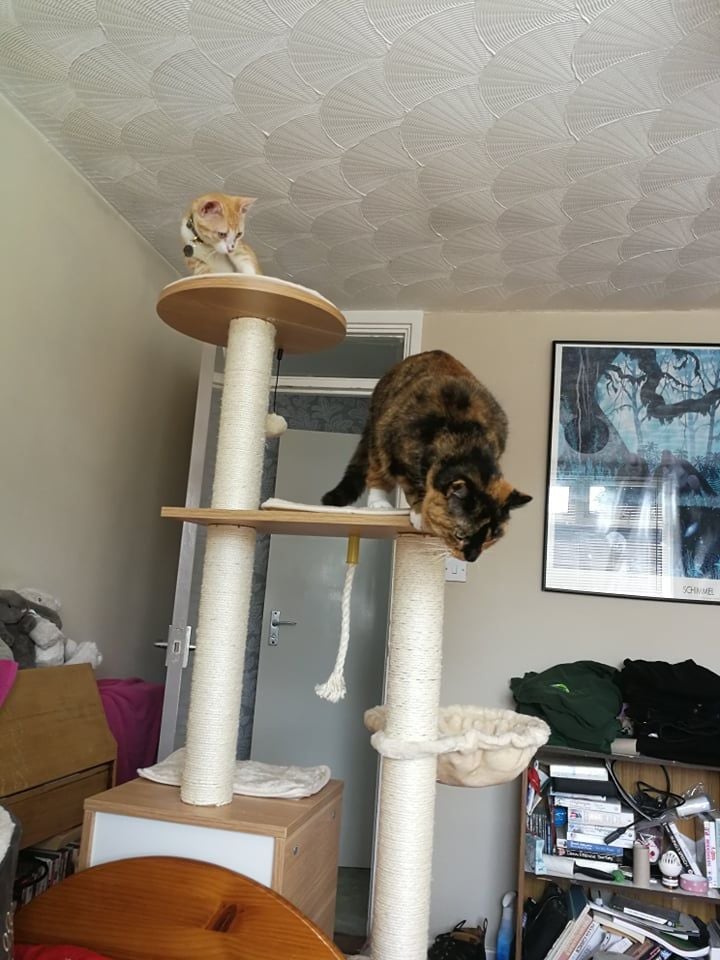
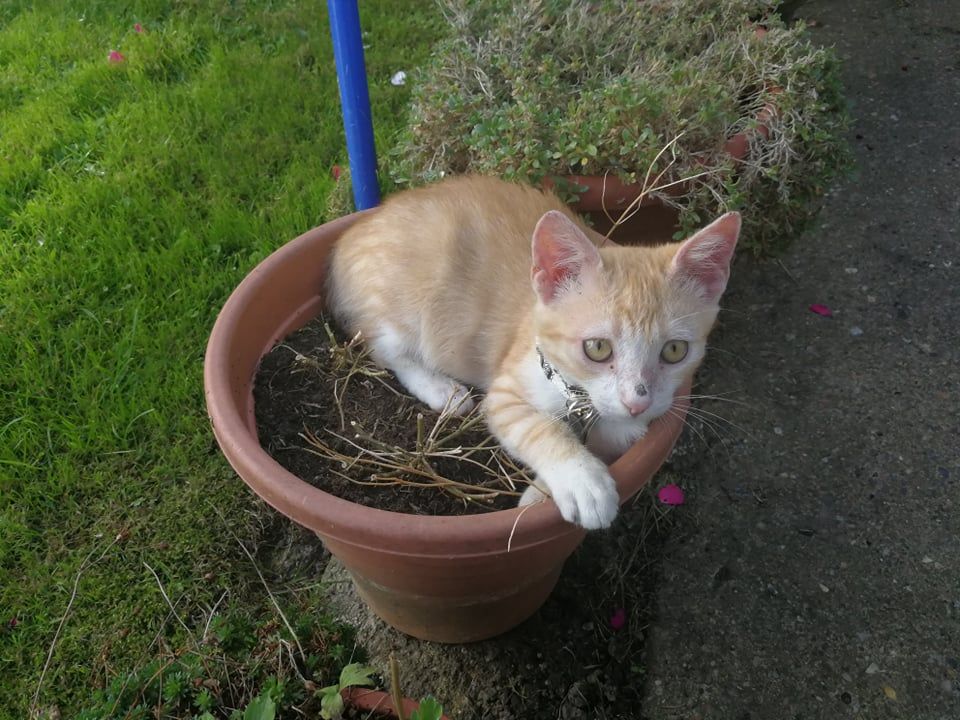
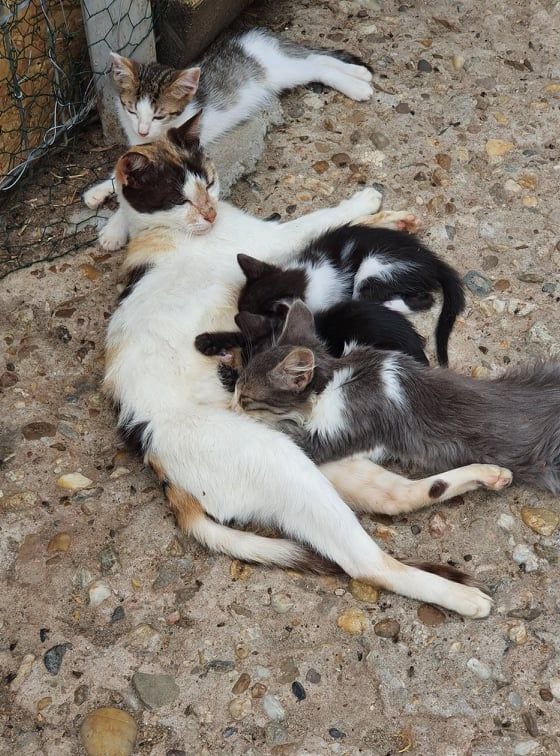
Cats: zoomies and claws...
Due to their street-cat backgrounds, they are much more active in the night than your usual UK moggy. The night time is the time that street cats can roam around without people trying to get at them.
This does mean that things in your home are likely to go bump in the night, you may come down to find things upside down in your home because your cat has gotten excited and had a zoomie session (high excitement, running around, jumping around and scaling things).
Zoomie sessions can happen at any time - you may see you cat zoom past you and do some strange things in the process. This is normal, a way to counteract it is to ensure they are getting enough play and mental stimulation.
Zoomies can also mean claws... It can happen when a cat becomes excited, stick their claws in and climb you like a tree, or hide behind a door and jump out and claw you as you or your child are walking by, they may even charge you and claw you if excited or aroused. It is important to remember that they are not attacking you or your child, they are excited and this is how cats play.
Homes with children:
Not all our cats are suitable to live with children and those that are parents are fully responsible for supervising their children around the cats. If provoked, cats will scratch and can bite hard.
You must supervise interactions with the children and the cat to ensure bites or scratches are prevented. Some scratches and bites may still happen, you must ensure that taking on a Romanian cat when you have young children is the correct decision for you, if you are not expecting the odd hiccup to occur, a cat is not the pet for your family.
- Cats must not be allowed to sleep on the child's bed
- All interactions must be fully supervised
- Children must not poke or try to interact with the cat whilst eating
- Children must not be allowed to pick the cat up and manhandle the cat, they will be scratched or bitten
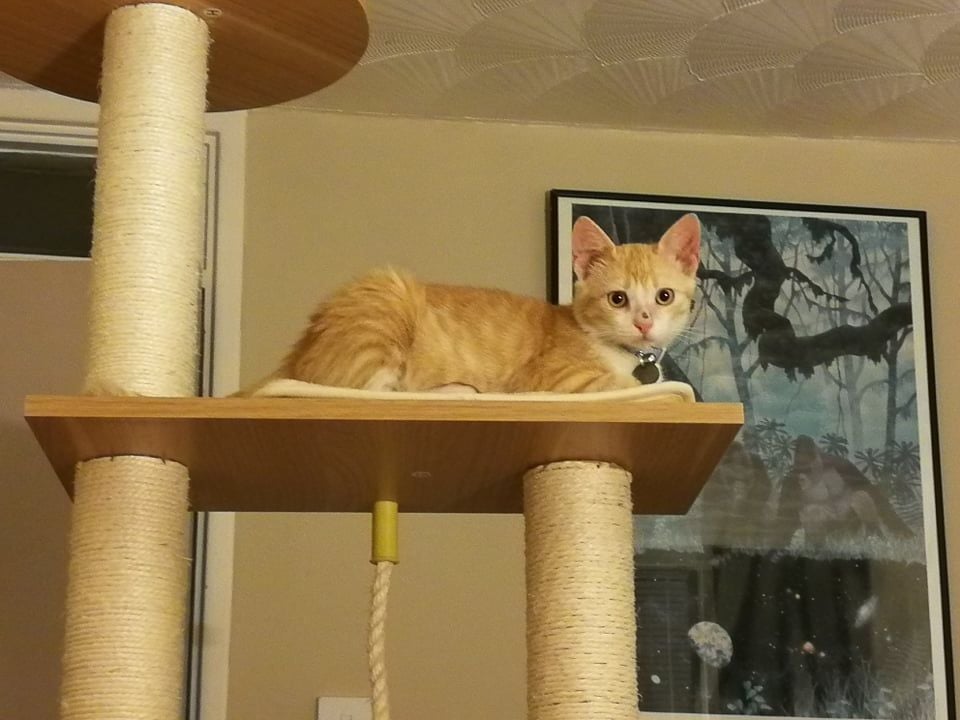
House-Cats
Due to the cats/kittens spending a lot of their life in a pen they have no road sense and are likely to be at risk in a busy area.
House-cats spend their time inside and use a litter tray for the toilet. If you do not have a garden, or have a shared/communal garden you will need to keep the cat indoors as a house-cat. You can walk the cat on a harness and lead around the outside space.
If you have a private garden but live close to a main road or a busy bus route you will need to keep your cat as a house-cat. You can walk the cat on a harness and lead around the outside space.
Letting them out into the roads could result in the cat getting ran over or spooked by the traffic and losing their way home.
If your garden is private and you do not live near a busy road you can let your cat outside, however, they must be quarantined indoors for a minimum of 4 weeks whilst they get used to the home.
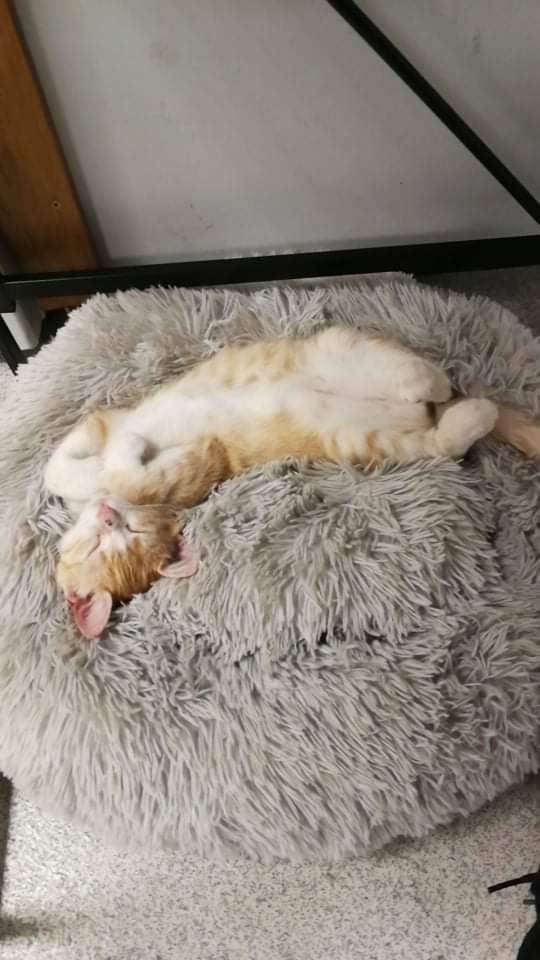
The positives:
If you've made it this far, we promise there are positives to adopting a semi feral cat! They are the most grateful cats you will have ever met. Seeing them relax in the home and start to come out of their shells is one of the best feelings in the world!
They become comical, loving and affectionate animals that keep you smiling!
The first time you hear them purr at you is very likely the first time they have ever experienced love and affection from a human, and it is very likely the first purr they have ever done to a human!
You give them the chance to experience comfort and change their lives forever...
Available Cats
If you are interested in adopting one of the cats below, please read through their profile's and apply using the application form at the bottom of the page. Please note: We will only ever have kittens from 15 weeks and over as this is the minimum legal age they can travel to the UK.

Nova |Female | 7 months approx

What you will need if you want to adopt a cat:
Cat carrier
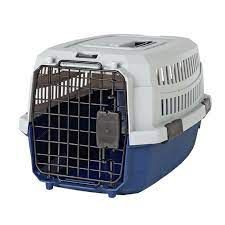
To get them from the transport van or take them to vets in future.
Cat litter and litter tray
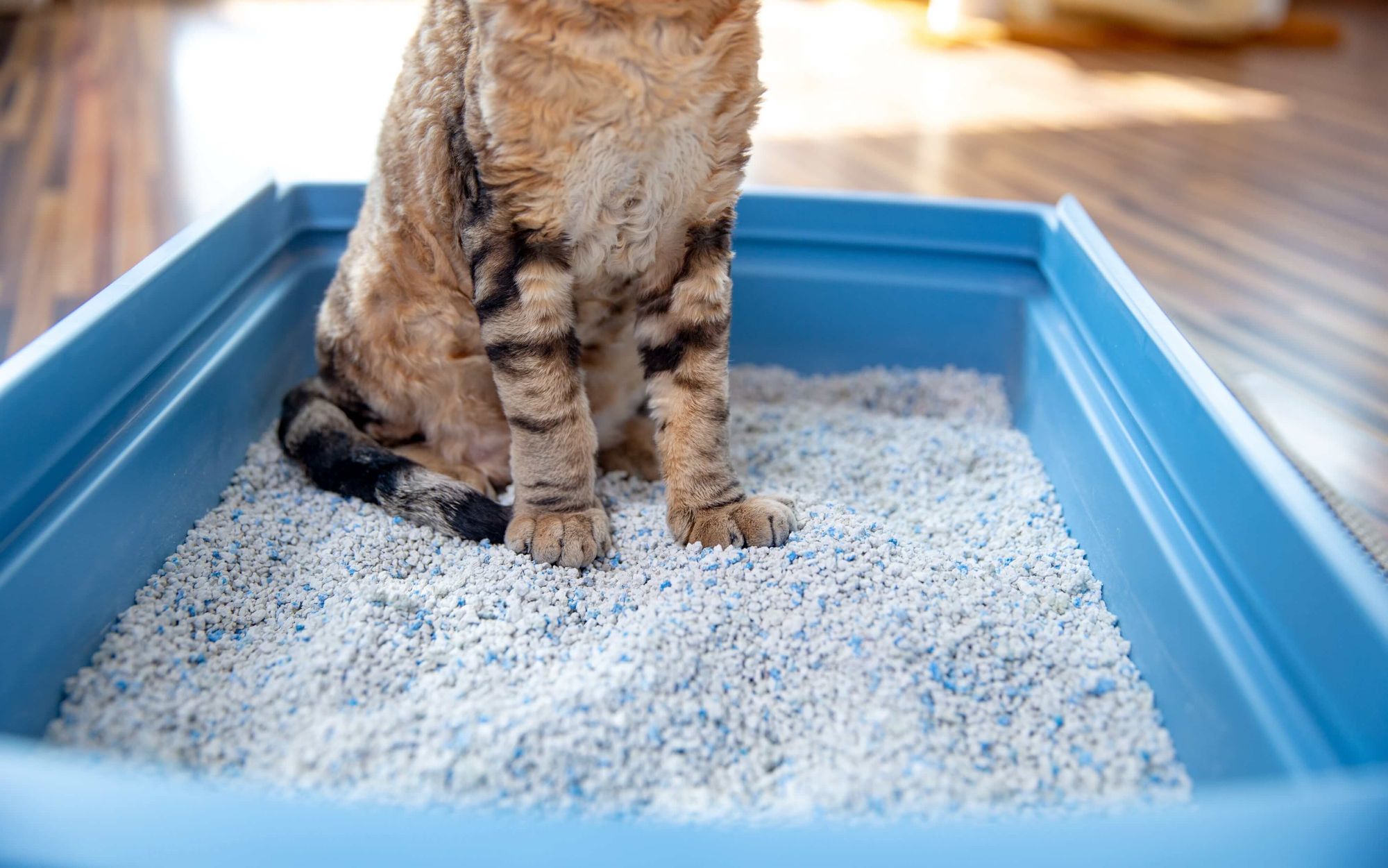
Put in a quiet place so that the cen can toilet away from people.
Bowls and food

Bowls and food for their arrival.
Cat tree
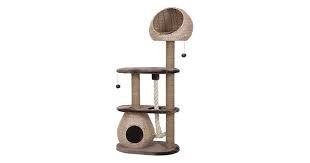
To provide them with platforms, an area they can scratch and hiding spots.
Feather teaser and other toys
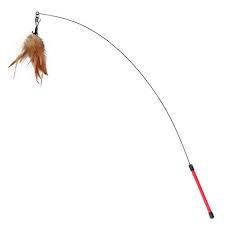
To exercise them and provide mental stimulation.
Collar with bell and ID tag

For cats able to go outdoors an ID tag is help to get them home. A bell will warn prey animals of their presence.
Adopted Cats
